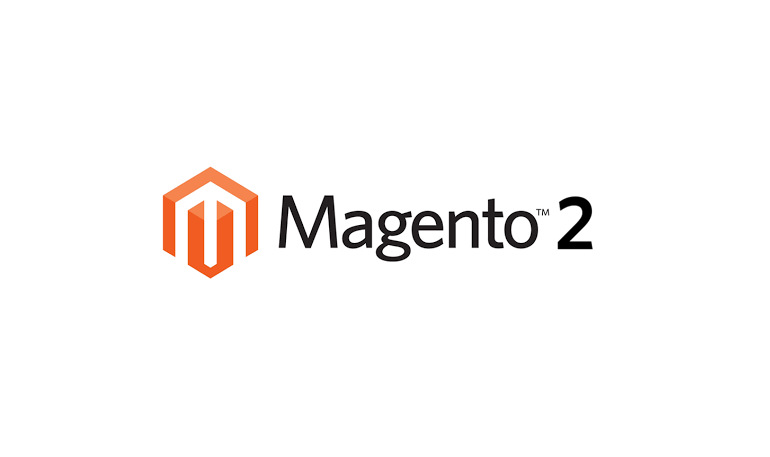Magento is an open-source e-commerce platform
Magento is an open-source e-commerce platform launched in 2008 by Varien. Based in California, Varien aimed to provide a platform that could be used by businesses of all sizes to sell their products and services online. The platform was built on the Zend Framework and used PHP and MySQL.
In the early years, Magento quickly gained popularity among businesses because of its flexibility, scalability, and customisability. It allowed businesses to create online stores that were tailored to their specific needs, with features such as multiple storefronts, internationalisation, and a vast range of plugins and extensions from Magento Marketplace.
Early versions of Magento were also much more aesthetically pleasing than some of the table based ecommerce competitors at the time. The prebuilt sidebar banners and out of the box theme were quite a jump in design.

Magento, eBay & Adobe
In 2010, Magento was acquired by eBay, and the platform continued to grow in popularity, particularly among small and medium-sized businesses. In 2015, Magento was spun off into a separate company, Magento Commerce, which was acquired by Adobe in 2018.
Over the years, Magento has gone through several major releases, each adding new features and improving performance. Some of the most significant updates include the release of Magento 2.0 in 2015, which introduced a new architecture and improved performance and security, and the release of Magento 2.4 in 2020, which included significant enhancements to performance, security, and functionality.
Magento 2
The Magento 2 release was fairly rocky, with many existing users not prepared for how big a transition Magento 1 to 2 would be. Migrating from M1 to M2 wasn’t seamless, as the architecture from M1 to M2 had changed quite a bit. Plugins would have to be repurchased and functionality such as reindexing was removed from admin.
If you’re facing Magento never-ending upgrade issues, give us a call.

Criticisms of Magento 2
While the platform has gained popularity for its flexibility and scalability, it has also received some criticism from users and experts in the industry. Magento offers a wide range of features and functionalities for eCommerce businesses, it has also received some criticism for its complexity, performance, security, customization, and cost. Here’s an outline of some of the criticisms of Magento;
- Complexity:
One of the most common criticisms of Magento is its complexity. The platform offers a vast array of features and functionalities, which can be overwhelming for beginners. The platform’s interface is also known for its cluttered and confusing layout, which can make it challenging to navigate.
- Performance:
Another criticism of Magento is its performance. The platform is known to be resource-intensive, which can cause slow loading times and performance issues for websites with a large number of products or visitors. Additionally, the platform’s codebase can be bloated, which can lead to slower page load times.
- Security:
Magento has also received criticism for its security. The platform is known to have had vulnerabilities that could have been exploited by hackers to gain access to sensitive information such as customer data and payment information. Additionally, Magento’s open-source nature can make it more susceptible to attacks, as hackers can analyse the platform’s codebase to identify vulnerabilities.
- Customization:
While Magento offers a high degree of customization, it has also been criticized for the difficulty of making customizations. The platform’s codebase can be complex, making it challenging for developers to make modifications to the code. Additionally, Magento’s reliance on extensions can make it difficult to maintain customizations over time, as updates to the platform can break compatibility with third-party extensions.
- Cost:
Another criticism of Magento is its cost. While the platform is open-source, it requires significant investment in development, hosting, and maintenance to ensure optimal performance and security. Additionally, the platform’s licensing fees for its enterprise edition can be prohibitive for small and medium-sized businesses.
Working with experienced developers and hosting providers can help mitigate some of the challenges associated with using Magento.

Pros of using Magento
- Flexibility:
One of the most significant advantages of Magento is its flexibility. The platform offers a vast array of features and functionalities that can be customized to meet the specific needs of a business. Additionally, Magento’s modular architecture allows developers to create custom modules and extensions to further enhance the platform’s functionality.
- Scalability:
Magento is also known for its scalability. The platform can handle a large number of products and visitors, making it an ideal choice for businesses that plan to grow and expand their online presence. Additionally, Magento’s architecture allows for easy integration with third-party applications, making it easier to manage multiple aspects of an eCommerce business.
- Search engine optimization:
Magento is designed with search engine optimization (SEO) in mind. The platform provides many built-in SEO features, such as the ability to customize meta tags and URLs, which can help improve a website’s search engine rankings. Additionally, Magento’s modular architecture allows for easy integration with third-party SEO tools and extensions.
- Community support:
Magento has a large and active community of developers and users who contribute to the platform’s ongoing development and support. The community provides resources such as forums, documentation, and extensions, making it easier for businesses to customize and optimize their Magento websites.
- Mobile responsiveness:
Magento is also known for its mobile responsiveness. The platform provides responsive design templates that allow websites to adapt to different screen sizes and device types. This is particularly important in today’s mobile-driven eCommerce landscape, where customers are increasingly using mobile devices to browse and shop online.
While Magento has received some criticism in areas such as complexity and cost, the platform’s positive aspects make it a compelling option for businesses of all sizes and in our opinion the market lead.




